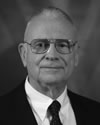With the handoff of power from one president to another, we enter this new phase of our national life in deep distress. We are divided and polarized, struggling to communicate reasonably with one another, and seemingly unable to find common ground on basic issues. Yet the path forward is neither new nor, really, difficult. We all know what needs to happen. We just need to do it.
To heal as a nation, we need to return to our traditional ways of doing business. We need to rediscover our skills at negotiation and compromise. We must rekindle our understanding that many people contribute to our progress as a nation and that no one has an exclusive on wisdom. And perhaps more than anything, we need to reassure ourselves that we have the confidence and ability to solve our problems. We have done it in the past. We can do it again.
I count myself among those who believe that President Trump’s misconduct should not be ignored — that healthy democracies hold public officials accountable for their actions and do not just sweep them under the rug in the name of moving on. Representative democracies cannot function if political leaders try to overturn the results of a free and fair election when they do not like the result.
At the same time, though, we badly need to focus on the tasks of governing. And by “we,” I mean all of us. Most of us will not have much impact on the future of social security or finding ways to provide affordable health care to every American, but we do bear responsibility for making our own little corner of the country work. We can look around our neighborhood, our community, our region, or our state, and do our best to make our system live up to its promise.
For starters, this means that we resolve our differences without resorting to violence or trying to overthrow the system. Our representative democracy has its faults, but over the long sweep of our history it has served us well, evolving as public understanding evolves. In our system, we work to reform it, not to jettison it altogether.
Binding up our wounds will take recognizing that we can work together to resolve our differences. We will be helped on this score by electing principled, practical, and pragmatic leaders. I have had the privilege in my time in politics of watching hundreds (if not thousands) of elected officials and their staff commit to making the U.S. a better country. This is our historic norm, and I want to see it function again: with a return to the business of governing. We want our representatives to disagree on policy grounds — not because of where they went to school or where they live or what they look like — and then negotiate, legislate, and find a way forward. You don’t always get results if you’re involved in public life, but you should strive to reach them. And if you fail the first time, it should be the norm that you move on and come back another day to try again or to correct what went wrong.
The truth is, we cannot solve our problems without talking to each other — and talking and talking and talking. That is why we need leaders who are pragmatic about what they can achieve and are skilled and experienced in the arts of compromise and consensus building. And we need citizens who expect their elected representatives — and the media they consume — to level with them, tell them uncomfortable truths, explain the facts, repudiate conspiracy theories, and put forward workable policies for a complex, ever-changing country.
We face tough problems. And while Americans do not expect miracles, they do expect their leaders to work together to solve them. That is how we move forward. The January 6 insurrection was a very dark moment in our history. We have a long way to go to move past it, but we have a chance to revitalize our democracy by showing that it can work to improve the lives of all Americans, regardless of their beliefs. We have done it in the past. We can do it again.
Lee Hamilton is a Senior Advisor for the Indiana University Center on Representative Government; a Distinguished Scholar at the IU Hamilton Lugar School of Global and International Studies; and a Professor of Practice at the IU O’Neill School of Public and Environmental Affairs. He was a member of the U.S. House of Representatives for 34 years.

